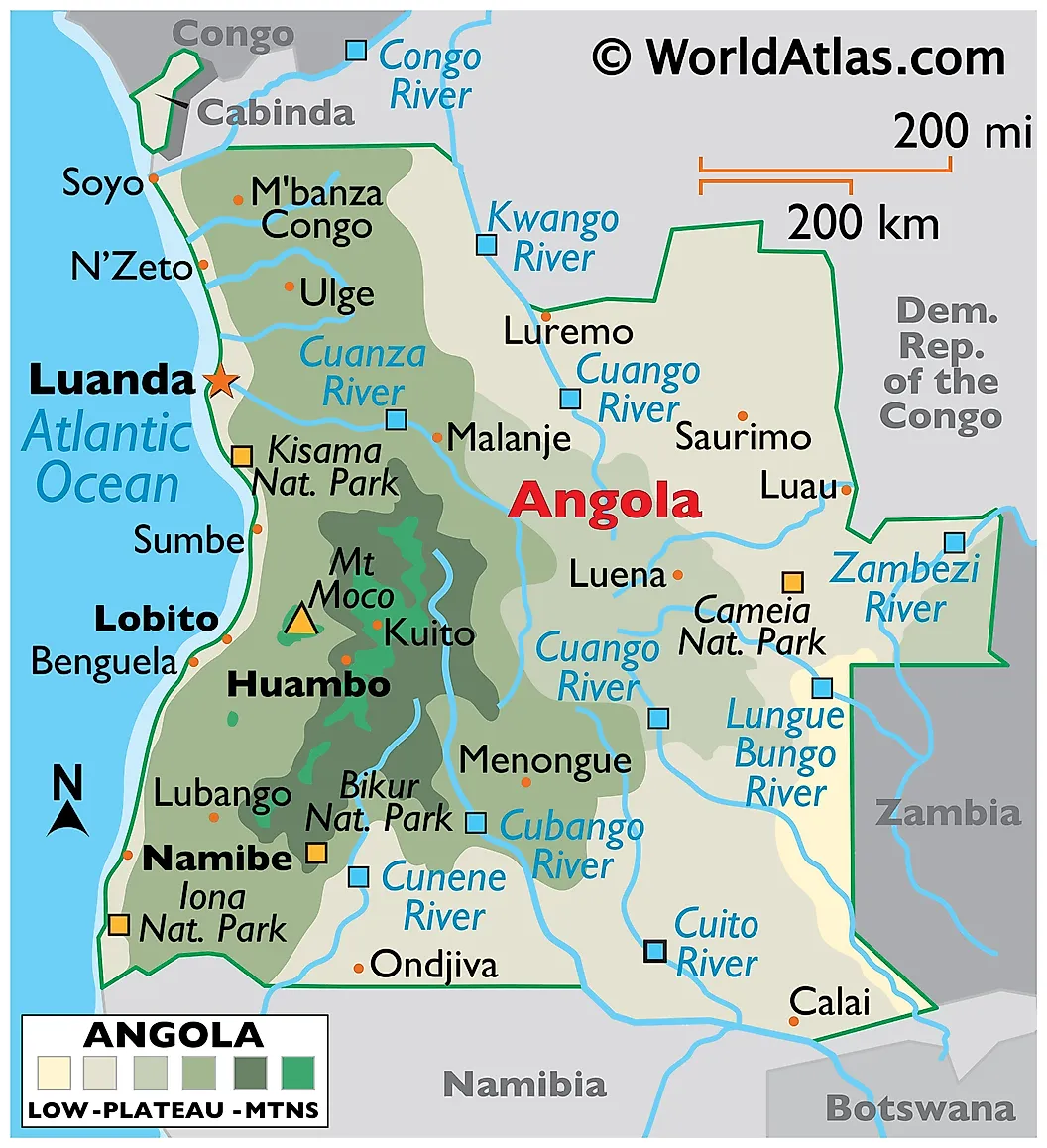The Current Angolan Economic Picture
Population (2025 est.): 39.0 million
GDP (Nominal 2024 est.): $113.3 billion ($2,884 per capita)
GDP (PPP 2023): $260.3 billion ($7,077 per capita)
Official Language: Portuguese
National Languages: Umbundu, Kimbundu, Kikongo, Chokwe, Oshiwambo, Luchazi
Area: 1.246 million km² (22nd largest in Africa)

Natural Resources:
- Petroleum (Angola is the top crude‑oil producer in sub‑Saharan Africa, ~50% of GDP and 90% of exports)
- Diamonds, iron ore, phosphates, copper, feldspar, bauxite, uranium
Main Industries:
- Oil & gas (dominated by Sonangol, Chevron, ExxonMobil, TotalEnergies, Eni, BP)
- Diamond mining
- Iron ore and other mineral extraction
- Basic manufacturing: cement, metal products, food & beverage processing, textiles, ship repair
- Agriculture (cassava, bananas, maize, sweet potato, palm oil)
- Fisheries (artisanal & commercial)
💡 Economic Opportunities for U.S. Companies & Investors
1. Energy & Oil‑Gas Services
- Angola’s oil industry accounts for ~50% of GDP and ~90% of exports; U.S. majors (Chevron, ExxonMobil) already present .
- The Lobito Corridor rail and related infrastructure (supported by DFC’s $553M loan) is opening access to oil, gas, and mineral-export pipelines
2. Infrastructure & Logistics
- The Lobito Trans-Africa Corridor is a $10 billion-plus U.S.-backed railway project to connect the DRC/Zambia to Angola’s port for critical-mineral exports—prime for U.S. engineering, telecom, and construction firms
3. Agriculture & Food Security
- Only ~3% of fertile land is cultivated, while food imports are high due to low self-sufficiency
4. Renewable Energy & Clean Tech
- Angola aims to generate 73% of energy from clean sources by 2027
- DFC funding in infrastructure can support U.S. firms in smart-grid, energy storage, and renewables.
5. Higher Education & Digital Infrastructure
- A $150M World Bank + $50M Global Partnership for Education “TEST” project creates openings for U.S. tertiary education partnerships
- U.S. support in digital infrastructure and telecom via State Dept supports investment in broadband, 5G rollout, and fintech .
6. Mining Diversification & Local Processing
- With oil-dominated exports, diversifying into minerals (iron ore, copper) and encouraging local processing aligns with African value-chain trends
- U.S. partners can develop secondary processing facilities and technical training hubs.
Angola stands at a pivotal moment: an oil-rich economy seeking to diversify via minerals, agriculture, clean energy, infrastructure, and digital sectors. U.S. investments backed by strategic engagement (like DFC funding and PGI support), combined with strong partnerships from Luanda’s government and reformist trajectory, position American companies well—but careful navigation of regulatory, governance, and market-concentration risks remains essential.






